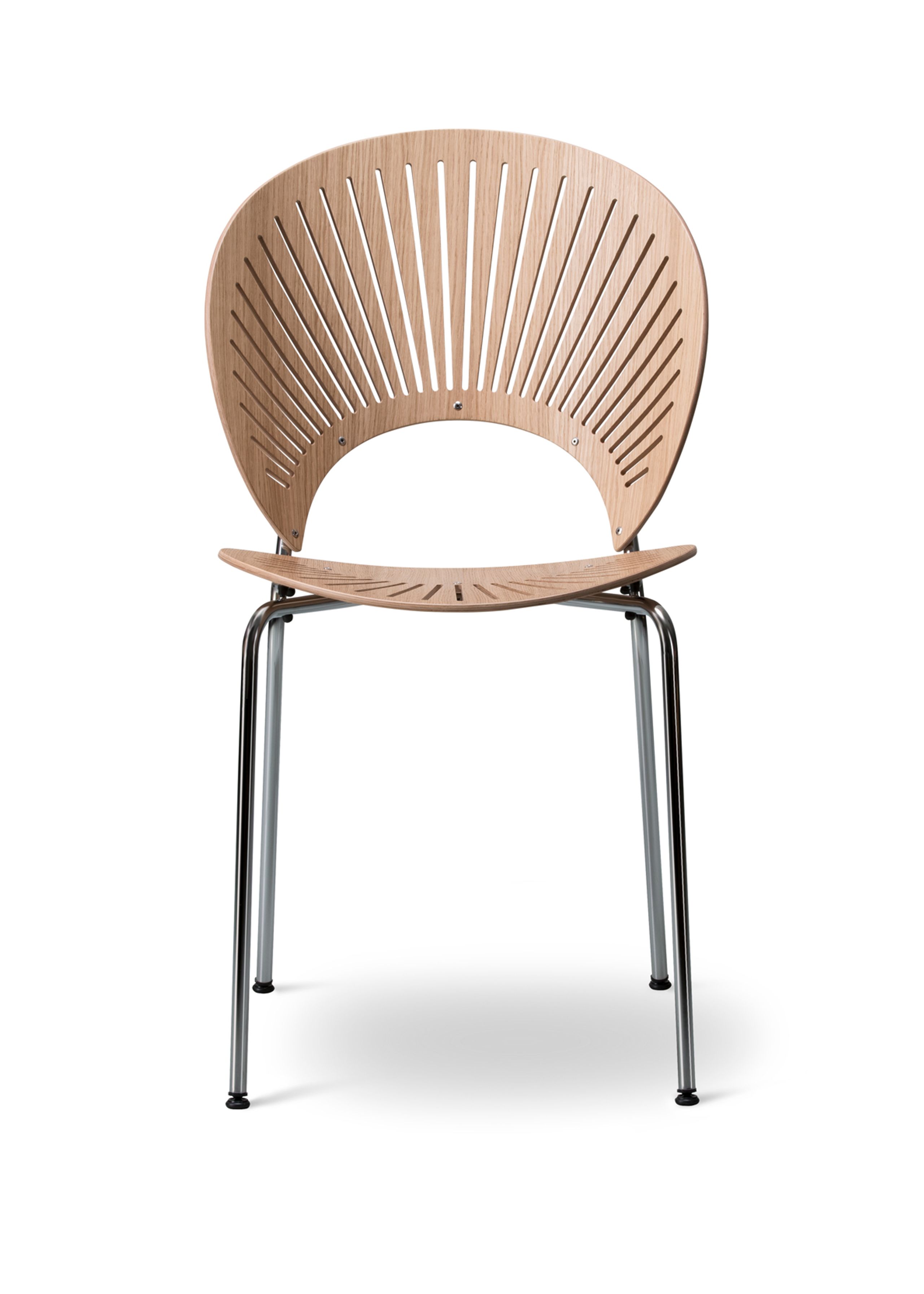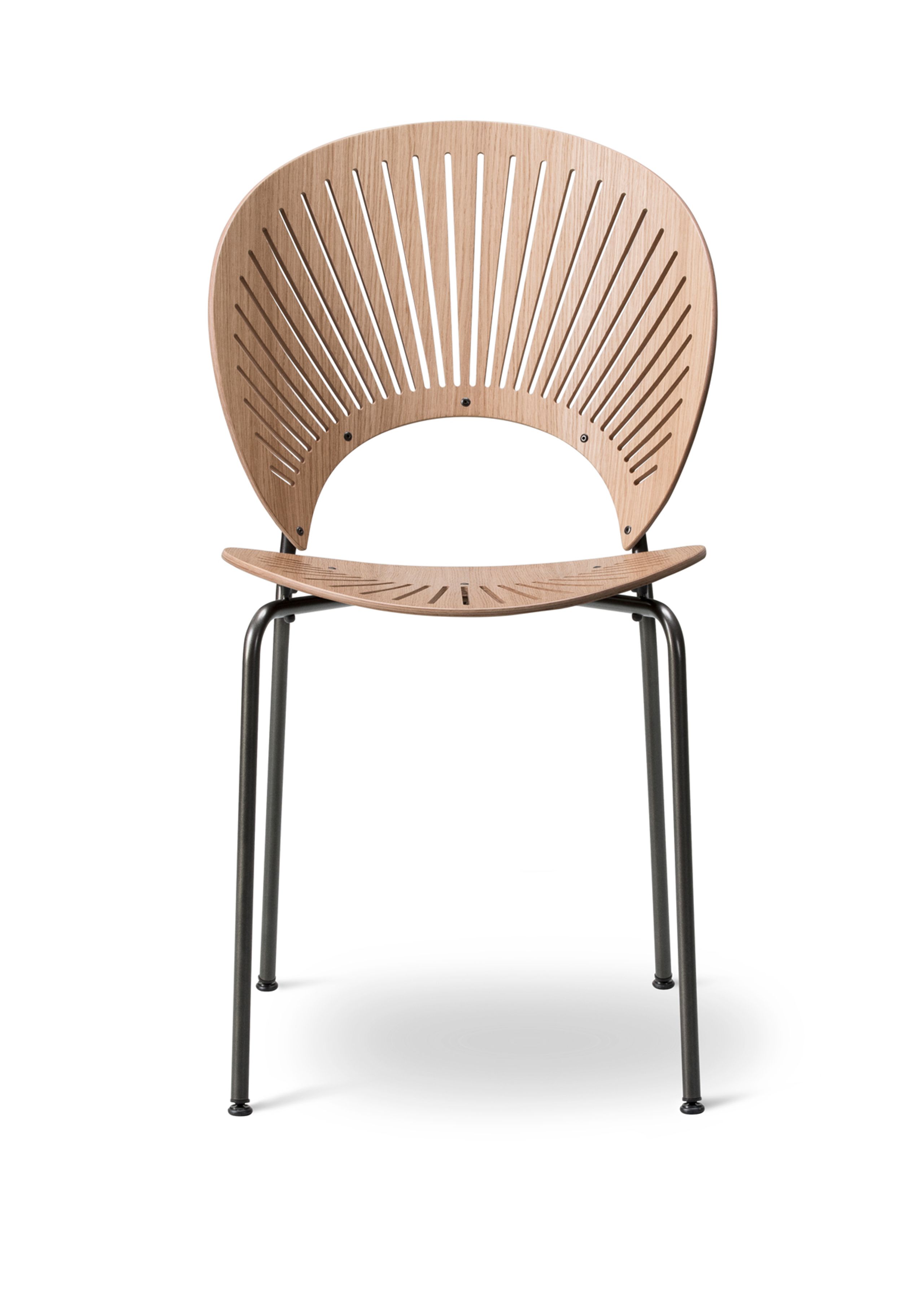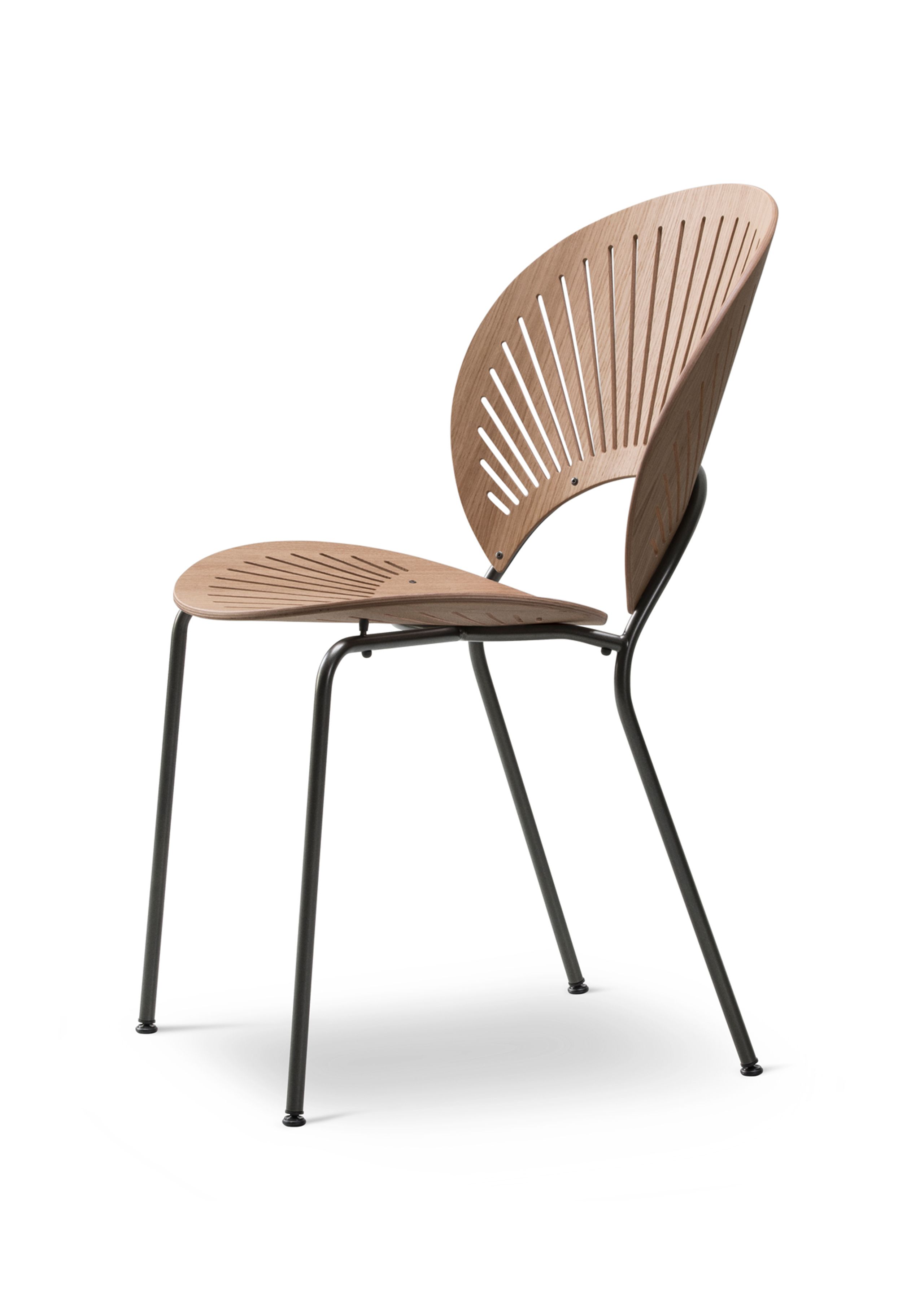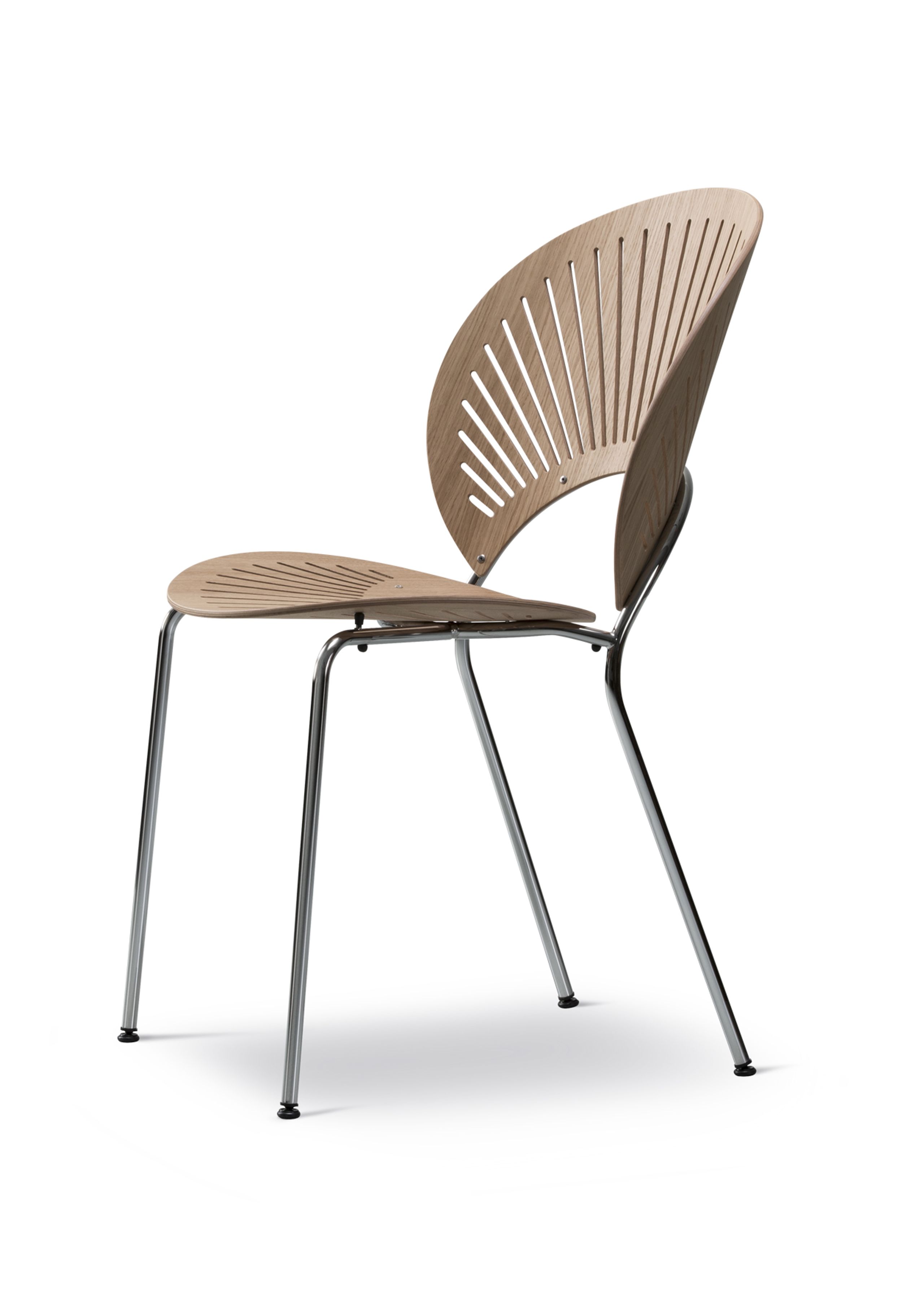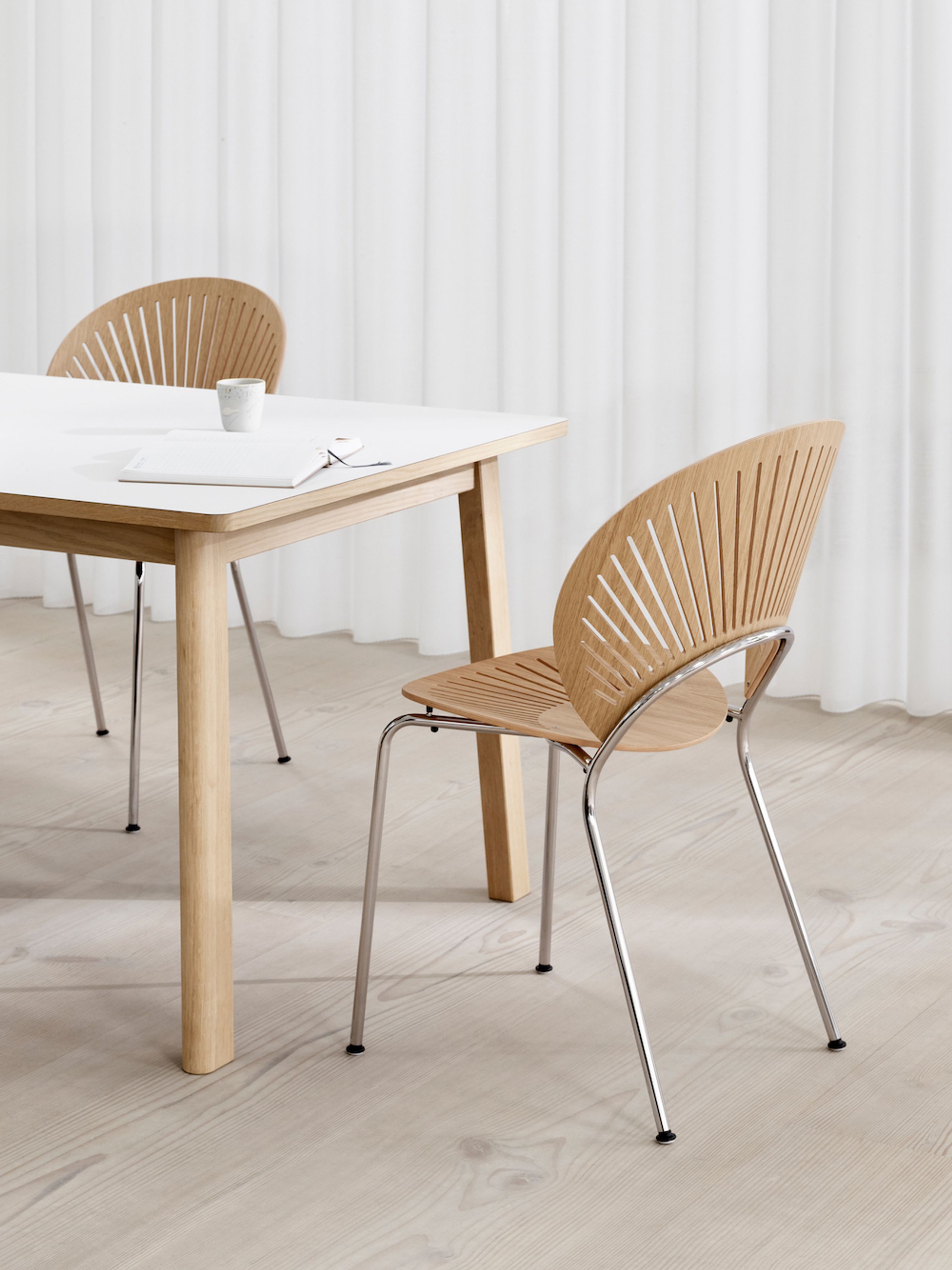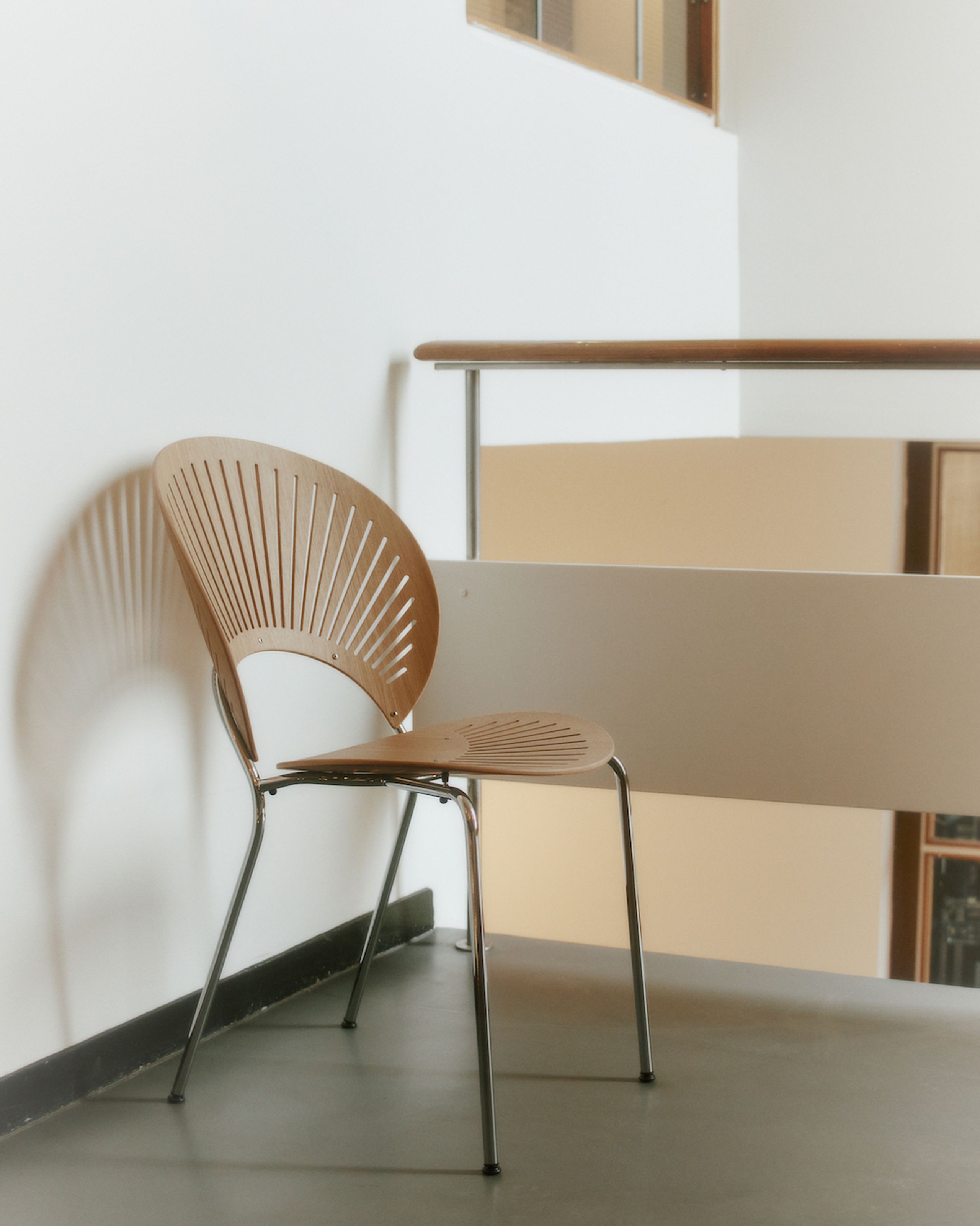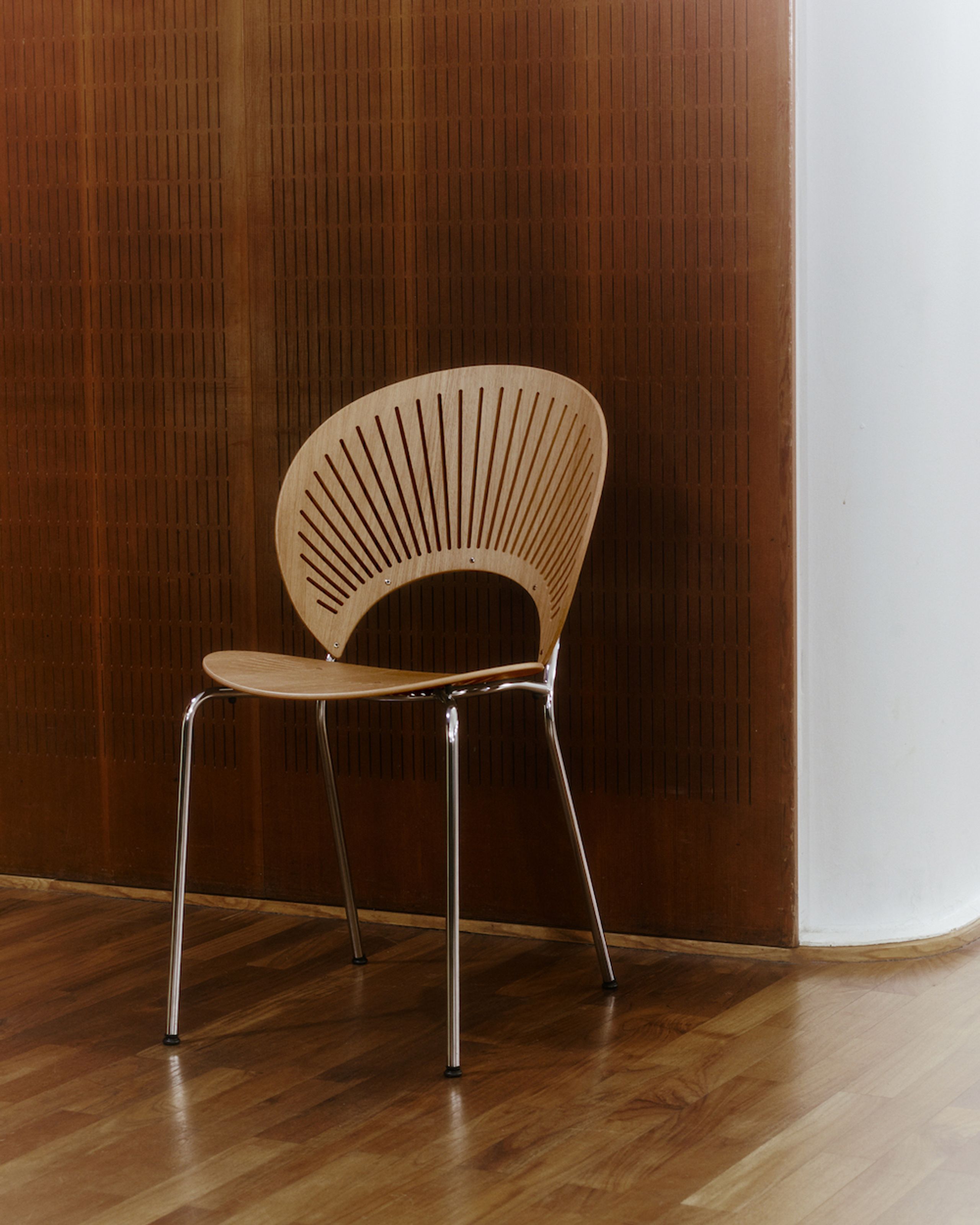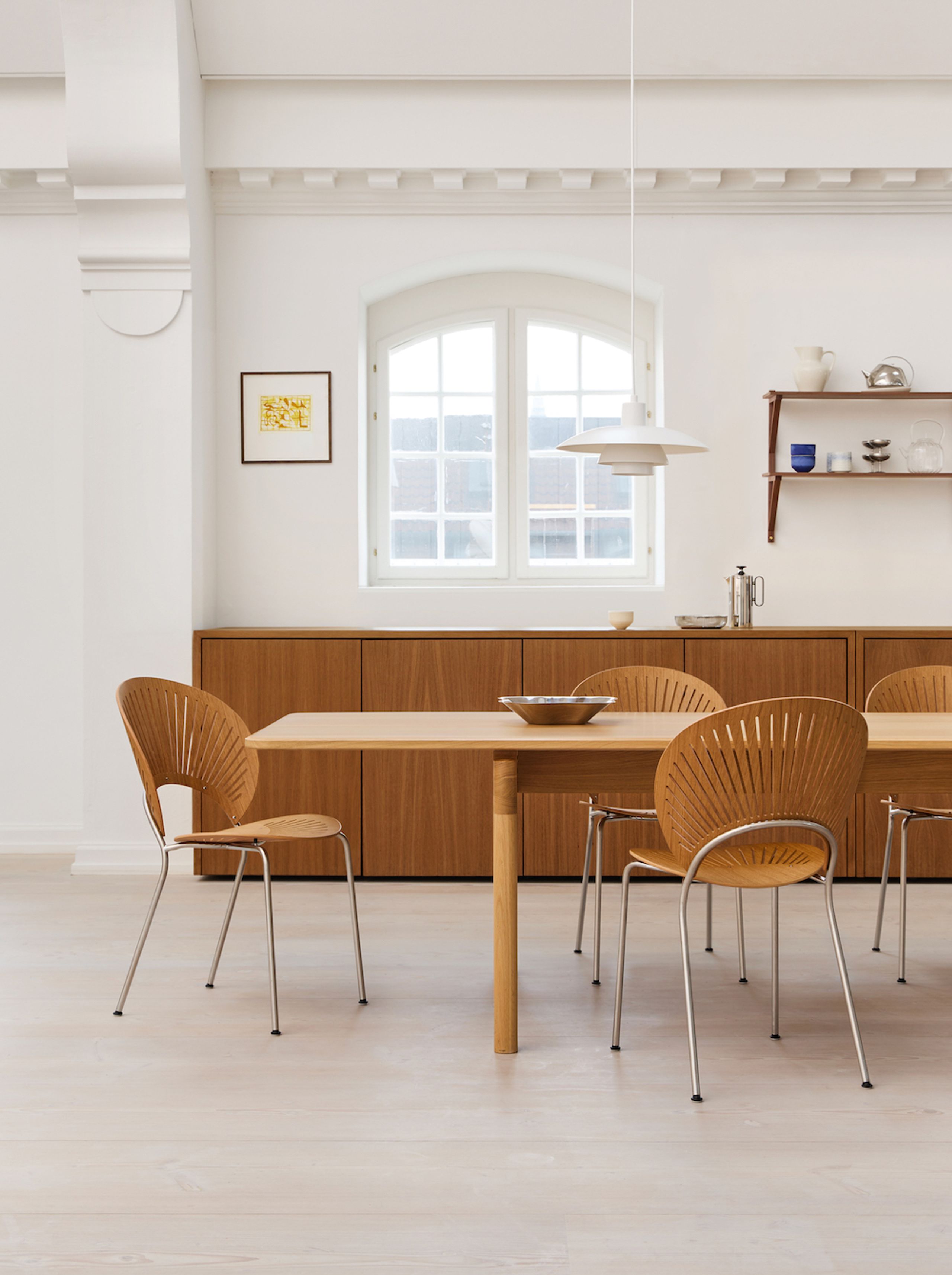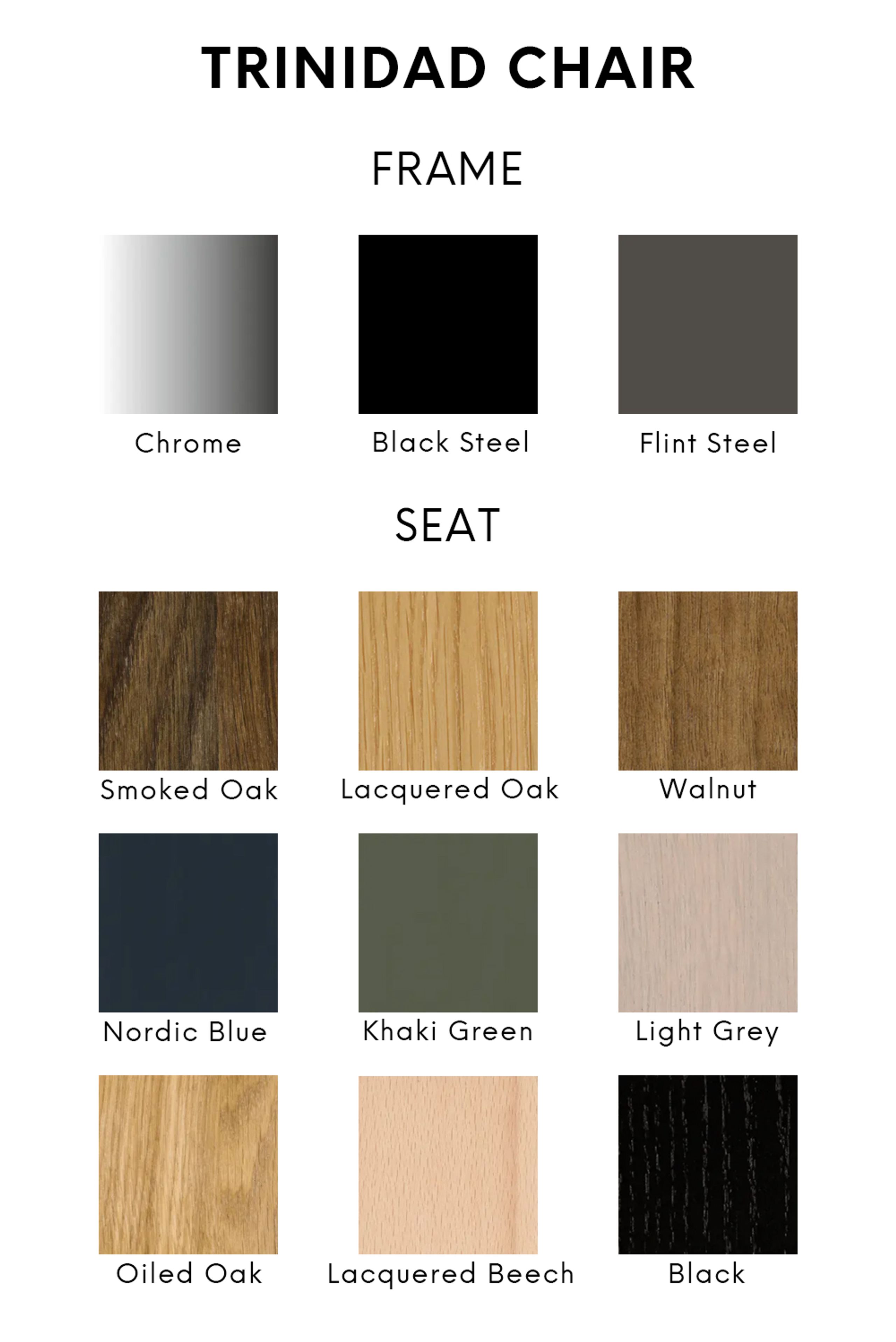Dining chair from Fredericia FurnitureTrinidad Chair 3398 by Nanna Ditzel
+ 219 zł shipping / 30 days return
Price recommended by : 2 671,17 zł
Price valid while stocks last
The 'Trinidad' chair, designed by Danish Nanna Ditzel, is a postmodern milestone in Danish design history, revolutionising the minimalist approach to materials that was a trend among most furniture designers in the 1990s. The chair takes both its inspiration and its name from the Victorian facades on the island of Trinidad, which were made using the so-called 'gingerbread' technique. The elegance of the facades and the interplay of sunlight created the foundation for the chair's iconic design, which today can be found in some of the world's greatest museums and most luxurious homes.
"I saw in Trinidad how the facades of the houses were almost dissolved in a play of light and shadow. They had a lightness about them, almost like lace - and I thought: I must be able to use that for a chair." - Nanna Ditzel
The chair is constructed with a seat that carries the character of the chair in the form of the milled 'gingerbread' shapes, made using a CNC milling technology that was a revelation for furniture architecture at the time. Like the building facades in Trinidad, the chair challenges the interplay of light and shadow which, depending on the angle of the viewer, changes character. Although the unique cut-outs were the focus of the design, Nanna Ditzel did not compromise on comfort. The shell is shaped in a rounded cone form that embraces the natural curves of the body, allowing for a formidable seating experience that not only adapts to the space but also the human.
- Frame made of black lacquered or chromed steel tubing and back and seat in moulded plywood with CNC-milled grooves. Supplied with standard plastic slippers, with the option of felt slippers on request.
- Model 3398 can be stacked up to 8 high.
- When cleaning oiled wood, a mild solution of soap flakes or a cleaner for oiled wood surfaces is recommended. New oil must then be added to prevent the wood from drying out.
- For cleaning varnished wood, a mild solution of soap flakes or all-purpose cleaner is recommended. Then polish with a dry soft cloth. Never leave liquids on lacquered wood surfaces as this may cause the lacquer to delaminate.
- When cleaning soaped and untreated, it is recommended to use a soft cloth, heavily wrung in a mild solution of soap flakes. Always wipe in the grain direction of the wood. Never use water on untreated wood surfaces if it can be avoided.
- Original design by Nanna Ditzel, produced by Fredericia Furniture (1993)
Enter your questions below. We do what we can to respond within 24 hours on weekdays.










